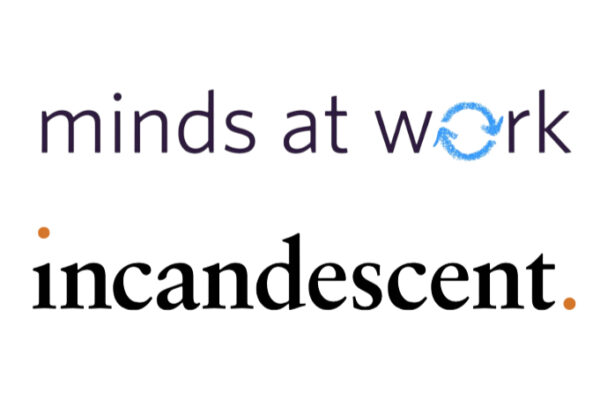
For years now, as we’ve mapped out the future of Incandescent, there’s often been a moment when Shanti and I turn to each other and say “now, if we could find someone like Traci, they could do this, and that would enable us to….” While finding someone like Traci Entel turned out to be a fool’s errand, we’re excited to announce the actual, inimitable Traci has joined us as a partner in building Incandescent.
Management consulting is difficult but isn’t complicated. There are two things that if you can do them right, everything else tends to fall into place:
- Clients experience you as a deep and lasting partner—not just while they’re “technically” clients, but forever
- You make the colleagues around you better—in the moment, and steadily over months and years
Traci is amazing at both these things.
As anyone who has had an extended conversation with Traci will know, she’s both intentional and intuitive about meeting people where they are. If Traci were a superhero, one of her signature bits of gear would be a pair of bright yellow glasses that reveal what’s really going on. She has a straightforward, practical, disarming way of just asking the question that needs to be asked and just saying the thing that needs to be said.
She’s always been this way. A little over twenty years ago, we were in the top of the third inning of a long relationship with Pfizer. One of our main clients was the head of Business Technology for Pfizer’s pharmaceuticals business, Vita Cassese. Vita was a real visionary, and she made a commitment that she was going to outsource all the infrastructure and support across Europe so that her team could focus on strategic applications for Sales, Marketing and Medical. She decided that IBM would be the right partner, because their values best aligned with Pfizer’s, and opened the door for them to what—it was so early in the development of the outsourcing industry—would be their first pan-European deal of this scale and complexity. Some outsourcing experts were hired, sophisticated people who negotiated on the premise that their spreadsheets could cudgel the other side into a numb submission. Vita called us into her office one day and told us that everyone was at loggerheads—the parties at the negotiating table staring at each other with crossed arms, and Pfizer’s European country managers were not convinced that this outsourcing business made any sense at all. Would we get a team on a flight to Brussels, and stay there for as long as it took for the deal to get done?
Traci was just a short while into her role at Katzenbach Partners, and in title was the junior member of our team. At first, the IBM executives were patronizing and the outsourcing experts – soon to be fired – were completely baffled at how a 24-year-old who had never worked in IT could possibly be relevant. Traci slowly, patiently earned the trust of Curt Petrucelli, Vita’s deputy in Europe, and working with him to engage the teams country by country, doing the hard hand-to-hand work of building a coalition to make the change. With her extremely detailed, practical understanding of what each of Pfizer’s countries truly needed—and why—Traci became the authority about exactly what IBM needed to deliver. There was no arguing with the logic that either enough of the things on Traci’s list needed to be accomplished or the deal just wasn’t going to get done. Traci was never strident with IBM; she just calmly showed them the problems that it was essential to their interest to solve, and held the bar of what it meant to solve them well enough. The deal got done, Curt became a friend for life, long after he left Pfizer and Traci left consulting, and in the years that followed, Traci and I built the relationship with Pfizer together.
On the strength of that experience, Traci was rapidly elevated to be a manager, and became one of the best talent developers I’ve ever seen. She deeply appreciates each individual’s strengths, and—with the same clear eyes that helped her discern exactly what it would take to get the IBM deal done—Traci sees just how it is the individual needs to grow in order to play the next level of their game. As a new manager, Traci was given a highly analytical assignment, requiring a level of modeling far beyond what she’d ever done. We assigned a star new associate with a highly quantitative bent, Michael Ellis, to help build the models. Michael was indeed brilliant. He could do the math, and teach Traci what she needed to know. And in the meantime, she taught him everything from how to do ride-alongs with reps selling specialty chemicals in the rural south to how to bring his models to life in the client’s boardroom. Michael’s since become an accomplished investor, and in recent years we’ve spent a lot of time in the boardroom together, as members of the Catchafire board. Watching Michael’s grace as we’ve navigated the company’s critical passages is an object lesson in seeing the lasting impact of Traci’s focus as a mentor. Someone who could have been carried to success on the force of intellectual brilliance alone learned to use his brilliance sparingly, to gain influence in a wider range of ways, and thereby to become someone who could build and nurture companies, not simply someone who could dissect them.
In the years since, Traci has brought these strengths to larger and larger stages. When we sold Katzenbach to Booz & Company, she rose to be the firm’s Chief People Officer and—while she was still in her mid thirties—a member of the firm’s global Executive Committee. She was Global Head of Talent Management at BlackRock, and one of the architects of how BlackRock’s distinctive approach to talent, building a cohesive firm culture in an industry rife with fiefdoms while driving impressive growth across a diverse range of businesses. Most recently, she led Employee Impact and Experience for Stripe.
At Incandescent, Traci will be taking significant leadership in two of the areas where we as a firm are most focused: working with large enterprises to build the organization, culture and talent they need to innovate and grow, and working with entrepreneurial businesses at pivotal stages in their development to develop the organizational capacity and leadership they need to reach the next level. Traci brings deep experience as a practitioner as well as a consultant in these domains, which matters so much in the execution of strategy.
There’s a segment on This American Life titled “The Oldest Trick in the Book,” in which Teller, of Penn & Teller, talks about how his famous Red Ball trick came to be. Teller describes how he was seized by an obscure inspiration, a book written by David P Abbott, “an amateur magician who made his living as a loan shark,” almost a century ago – and began obsessively practicing one of Abbott’s tricks. As Ira Glass describes:
… the trick that attracted Teller was this golden ball, six inches across like a small cannonball, that Abbott could float around his living room. That was supposed to be one of the most beautiful routines in magic. That's exactly Teller's taste. Teller loves doing silent, beautiful tricks alone on stage. And solo bits like this are in every Penn and Teller stage show.
Glass explores with Teller how, at every turn in the development of the trick, Penn hated it—and each time they unpacked why, it gave Teller a clue:
I think it hadn't clicked with him because it lacked an essential dramatic idea. Of course, to me, I was all wrapped up in the idea that it was a floating ball that wasn't floating, which isn't a very good idea. I mean, that's not an idea that communicates to an audience.
Glass, with his own form of verbal sleight-of-hand, shows us the back and forth between the two, this installment in the long conversation between two men “who have been arguing, they say, constantly and fiercely, but productively for over 40 years.”
Then, like finding a sudden clearing, we arrive:
… and Penn said, I think all you need is [to say]: now here's a trick that's done with a piece of thread.
That gives them so much. It brings them over onto our side. And suddenly, this now had an idea. And the idea was bigger than the little plot with the little ball. It was bigger than all the little magic tricks. It was that you can state the actual method of a magic trick clearly at the beginning of it, and it can still fool the hell out of people. That by knowing this extra piece of information, the trick becomes better.
That’s what I’ve experienced in all my years working with Traci: that when she’s there in the conversation, she makes it clearer what the trick is meant to do, and the magic comes more fully and more vividly to life. No one I’ve ever worked with has more consistently made my own work better. What a gift to have her—again—as a partner.



